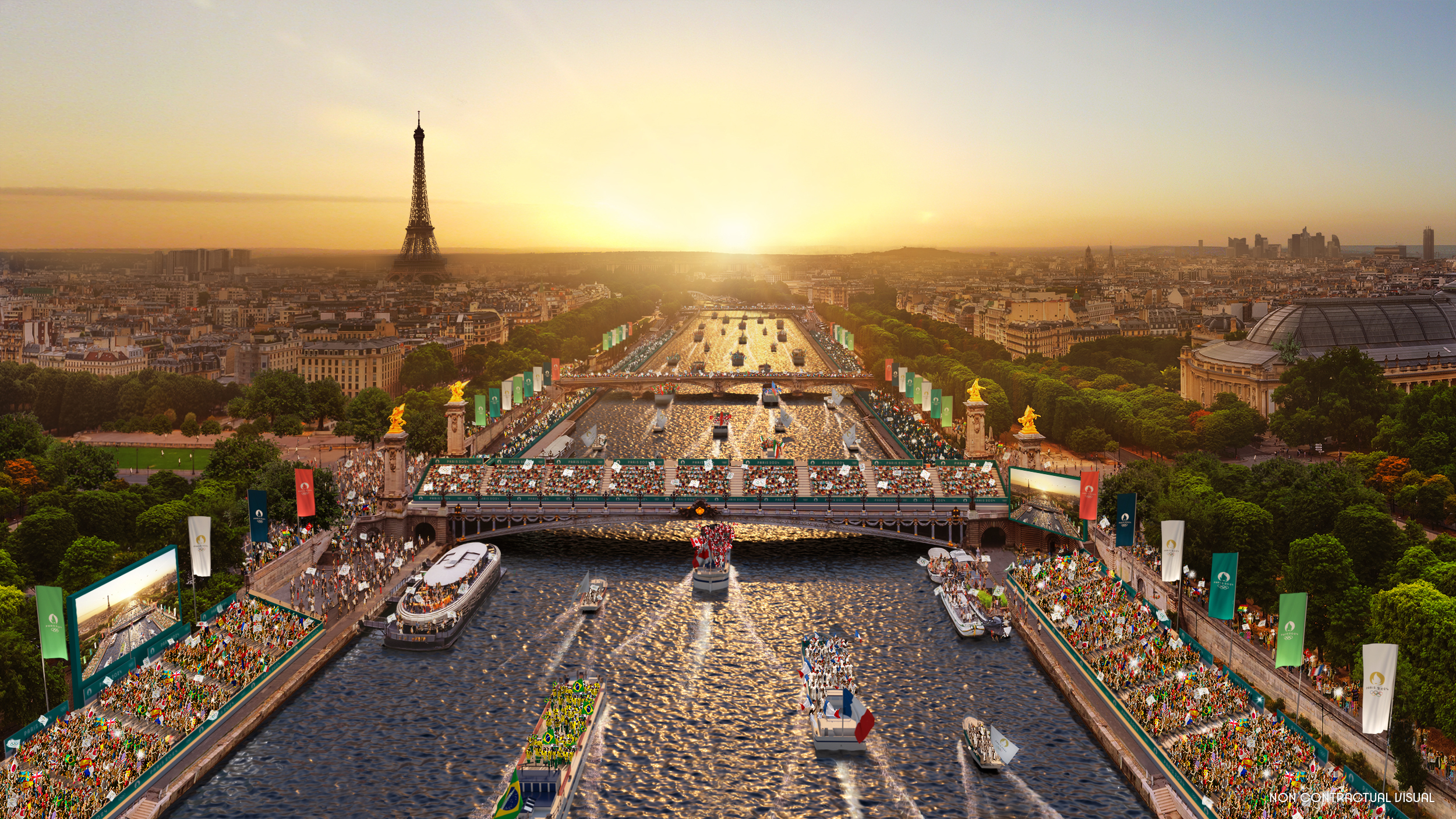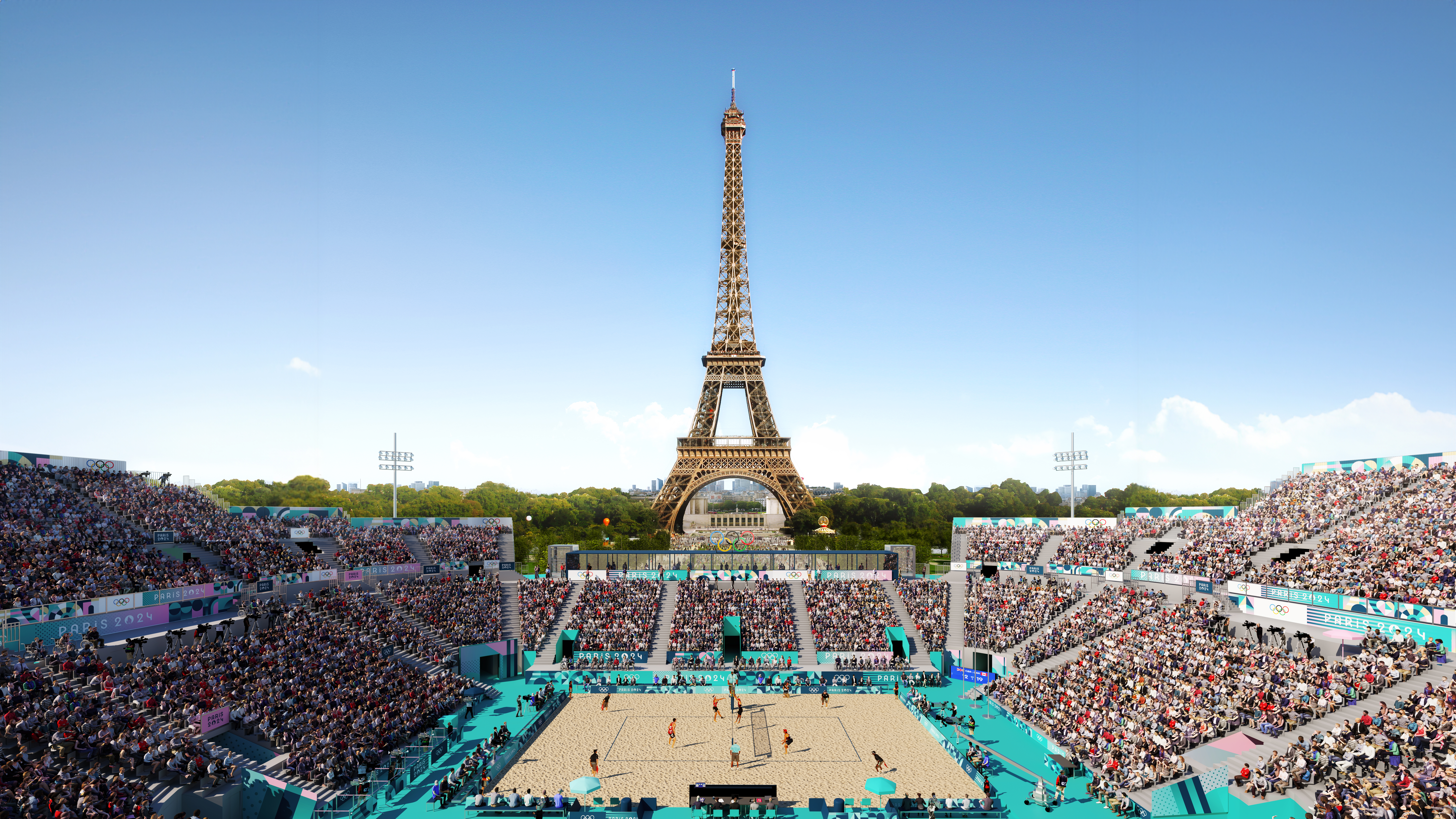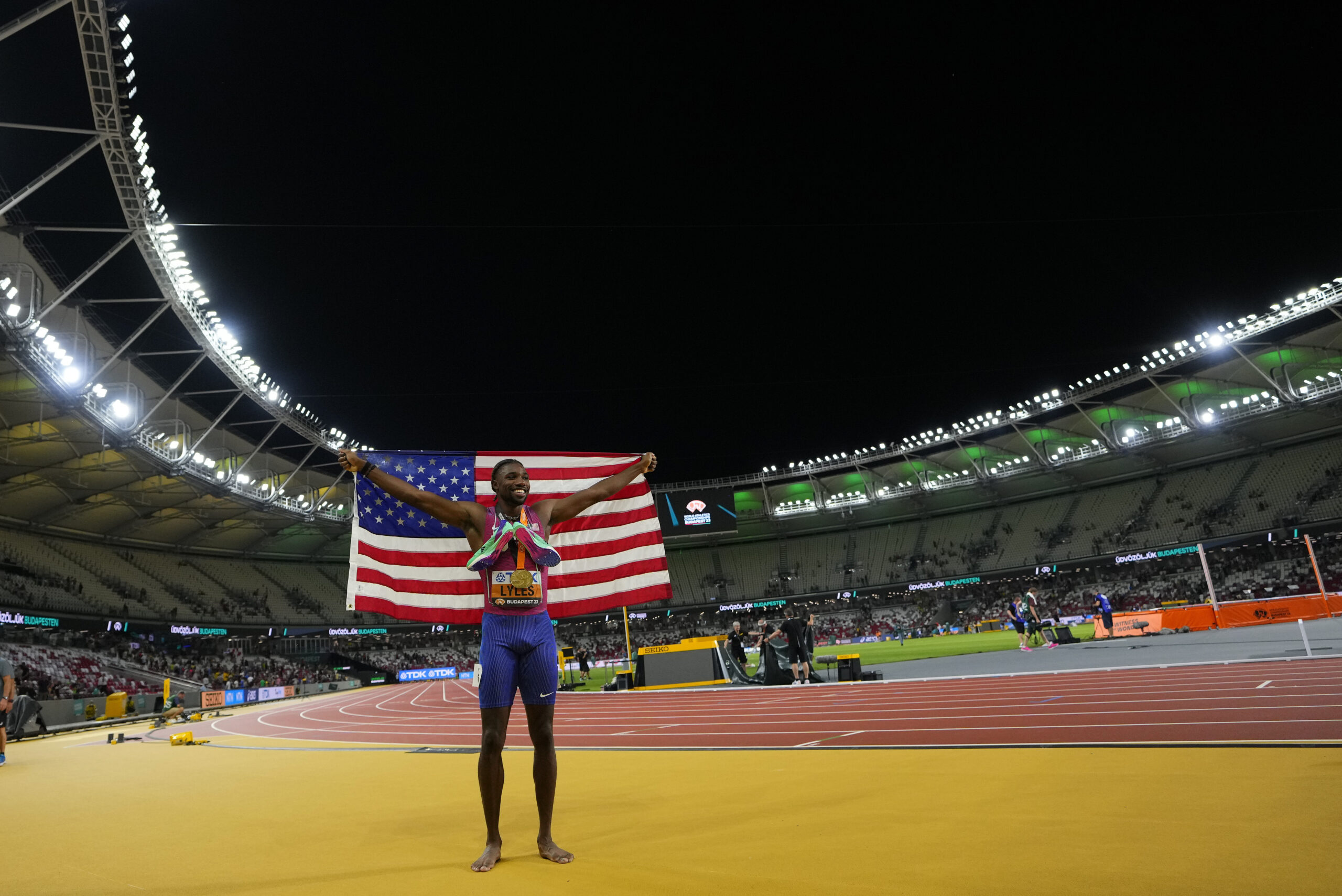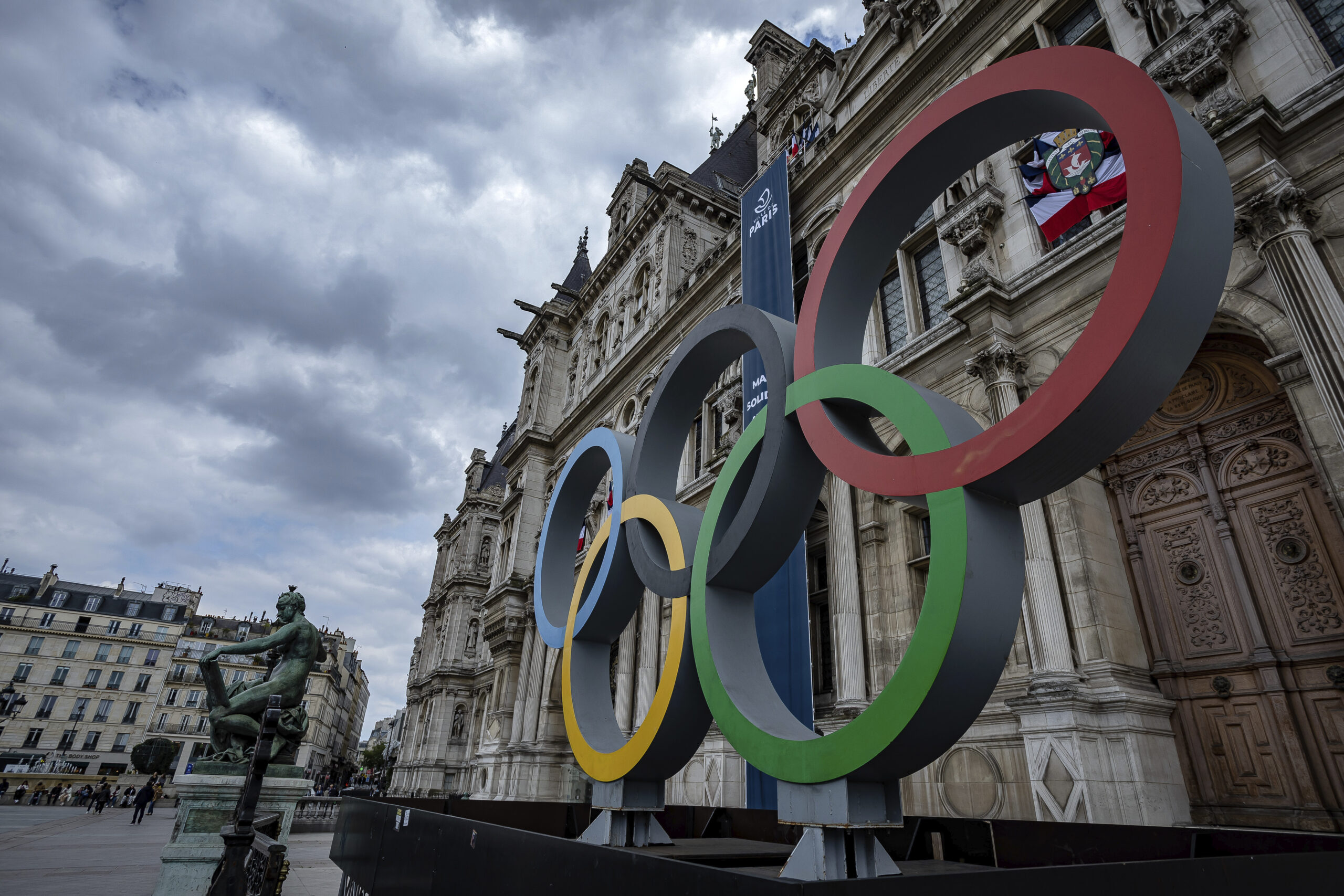
Paris’ place in the world has been romanticized through generations of travelers, journalists and novelists. Paris is always a good idea, goes the saying, and this summer that is the case for sports.
While one visiting Paris in the summer typically takes time to enjoy the food, the sights and the landmarks, this summer will offer the chance to see some of the best athletes in the world during the Olympic and Paralympic Summer Games. With thousands of athletes competing and even more attending, plus the millions watching around the world, there will be plenty to discuss and focus on in the weeks and months to come.
With just over 100 days from the Opening Ceremony, here are some of the major storylines from what is shaping up to be a memorable Games.
A Return to Normalcy
Between the Summer and Winter Games, the past two events have been held in pandemic conditions that forced families and fans to stay away. The spirit of the Olympics and Paralympics for fans to interact with athletes and for those athletes to be cheered on by family and friends has been lost for nearly a half-decade. The last Summer Games to have fans was 2016 in Rio, which now is best known for the number of stadiums sitting empty despite their major costs.
The Olympic community has been wanting to get together for a long time and this summer, it gets to do so in one of the most famous cities in the world — and demand is showing. Of the 10 million tickets available for the Paris Games, almost 8 million have already been reserved.
“Paris is going to be the great coming out party from the pandemic,” USA Wrestling Chief Executive Officer Rich Bender said. “It’s going to be a time for us to turn the page on the pandemic and all the challenges that we faced. … I think there’s a renewed appreciation for sport around the world. The Paris Games, I think, will be the most relevant games in the history of mankind. That seems like a big statement, but I believe it.”
These Games will also mark one of the biggest pushes by an organizing committee to recognize and include the Paralympics into widespread attention. Phryges, one of Paris 2024’s mascots, wears a prosthetic running blade to highlight Paralympic athletes — the first time such a mascot features a visible disability. In addition, official posters for the 2024 Olympic and Paralympic Summer Games in Paris can be combined into one image of Paris as a sports city.

Striving for a Sustainable Games
This will be the biggest test of the IOC’s Olympic Agenda 2020, which calls for Games organized in a way that does not leave empty stadiums built for one event or cities with hundreds of millions of dollars in budget overruns. In Paris, only two Olympic venues will be new, permanent builds with 95 percent of the events scheduled for venues that already exist or that will be temporary.
“One of our goals and our vision of the organization was to go outside of the classic sports arena,” said Pierre Rabadan, deputy mayor of Paris in charge of sports and the Seine, during an event last spring. “We would like to bring sports inside the center of the city and especially the city of Paris as the host city. It’s not easy to organize but we want to push that idea.”
Beach volleyball will be at a temporary venue at the base of the Eiffel Tower. The marathon course will start at Hôtel de Ville and weave its way around the Louvre Pyramid, Grand Palais and Château de Versailles, which will also host modern pentathlon. Place de la Concorde, where Marie Antoinette and Louis XVI were guillotined, will host 3×3 basketball, BMX freestyle, skateboarding and breaking, which makes its Olympics debut.
“There is going to be no more iconic venue in Paris than the beach volleyball venue that is sitting at the foot of the Eiffel Tower,” said USA Volleyball Chief Executive Officer Jamie Davis. “As NBC is broadcasting and when they’re coming in and out of commercial breaks, you’re going to see a lot of a beauty shot that’s going to be like no other. … (Between) that venue and the momentum that the sport is having not just in the United States, but globally, it’s going to really be a phenomenon.”
Then there is the unprecedented Opening Ceremony. For the first time, it will take place not in a stadium setting but along the River Seine and its banks. With a few exceptions, swimming in the Seine has been off limits since 1923 but a $1.5 billion cleanup was motivated by the Olympics and for it to live up to its billing as the world’s most romantic river.
The focus on sustainability extends to the Athletes Village, which will host 15,600 athletes and officials during the Olympics and 9,000 athletes and supporting teams during the Paralympics. After the Games, the 125-acre site plans to become a residential and commercial neighborhood with 6,000 inhabitants, one of the largest new planned housing areas in recent Parisian history. The rooms will not have air conditioning in them; instead, a water-cooling system under the Village is planned to ensure that the temperature does not rise above 79 degrees at night.

U.S. Favorites to Watch
There’s no doubt which country is the favorite to top the Olympic medal charts — the United States won the medal table in 2020 by 24 overall over China, also winning the most golds (by a margin of one over China). The last time the U.S. did not lead the overall medal table was 1992.
USA Gymnastics has been a dynasty in recent Games and this year’s trials in Minneapolis may include three previous Olympic all-around champions between Simone Biles, Gabby Douglas and defending all-around champion in Suni Lee. USA Swimming is the team to beat in almost every competition it enters and Katie Ledecky is looking to add to her medal haul that stands at seven golds. The women’s basketball team has won every gold medal since 1996 and this year’s team — which could include college superstar Caitlin Clark — will star A’ja Wilson, who was on the Tokyo gold-medal winning team and enters this summer having won the past two WNBA championships with the Las Vegas Aces.
Waiting for the last half of the Games to sit back and watch the track competition? Sha’Carri Richardson is the sprints headliner while Sydney McLaughlin-Levrone is nearly unbeatable in hurdles. And that may seem like a lot of names but we haven’t even gotten to the volleyball program, which won gold both in indoor and beach in Tokyo three years ago. The women’s national water polo team has won five of the past six world championships and in Paris will seek a fourth consecutive Olympic gold medal.
While the U.S. female contingent has long stood out from the crowd, there are more than enough men’s athletes worth paying attention to as well. For many of the men’s basketball players, including LeBron James and Kevin Durant, this will likely be the final Games at which to add to their gold-studded trophy rooms. The U.S. wrestling team has six individuals ranked in the top three in the world in their respective weight classes. The swimming team is led by Caeleb Dressel and if you somehow have not heard of Noah Lyles yet, the track star may end up as the standout athlete in Paris.
And don’t forget the Paralympic standouts. After a silver medal at the Tokyo Games, swimmer Leanne Smith won seven gold medals at the 2022 World Championships. After breaking the career U.S. Winter Paralympic medals record in 2022 (14 total), Oksana Masters is expected to switch back to cycling for a Summer Games bid. In Tokyo, she won the road race and time trial. Nick Mayhugh led the U.S. Paralympic track-and-field team in Tokyo with three gold medals and one silver. Hunter Woodhall was the first double amputee to earn a NCAA Division I scholarship in 2017 and has three Paralympic track-and-field medals between 2016 and 2020.
New Sports on Program
Breaking, aka breakdancing, will make its Olympic debut in Paris. Paris organizers are aiming to appeal to younger fans with breaking, which will join sport climbing and 3×3 basketball at a multisport complex on Place de la Concorde.
Breaking has been promoted by Parisian organizers in events that even go beyond the Olympics. The competition will feature 16 bboys and 16 bgirls who will compete in a 1v1 competition and the sport has gotten significant interest within the Olympic movement and for destinations in the United States wanting to host breaking events.
While skateboarding, sport climbing and surfing are described as new sports for the Games, they did in fact appear first on the Olympic program in Tokyo in 2020. Surfing will be intriguing if only because in part through the Olympic Agenda initiatives, the competition will be held halfway across the world in Tahiti. The proposed scale of the site called for new roads, housing units and even an aluminum judging tower that required drilling into the reef, which caused local backlash.
The irony of breaking being the new sport with the most anticipation is it’s the one new sport that will not be part of the 2028 Games program in Los Angeles whereas the other three will be part of LA28 along with flag football, cricket, squash, lacrosse and baseball/softball, which was part of the 2020 Games in Tokyo.

Beyond the Competition
While the IOC can talk about the Games being only about the athletes and focused solely on athletic achievement. But that has never been the full story — and honestly, one of the reasons the Olympics for decades have been such a desirable TV property is because of the geopolitical overtones. Do fans want to watch superstars break records and shatter what is thought to be the limit of athletic achievement? Of course. For decades, U.S. fans have also watched because it was us against them — whether them was the Soviets for decades and in more recent years, the Chinese.
The geopolitical shadow over these Games will be present no matter how much the IOC tries to ignore otherwise. What used to be a chummy relationship between Thomas Bach and Russia President Vladimir Putin is anything but now as any neutral athletes from Russia or Belarus will not participate in the Opening Ceremony.
Because of the IOC’s neutrality requirements, the maximum projection is 55 Russians and 22 Belarusian participants compared to the 2020 Games in Tokyo in which 330 Russians and 104 Belarusians participated. Ever since the formal announcement that Russian and Belarusian athletes would be allowed to compete, athletes and officials from Ukraine, including President Volodymyr Zelenskyy, have urged the IOC to change its mind — a position it has held since the start of the Russian invasion.
There is also the Israel-Palestinian conflict, which has led to concerns about the safety of the Israeli team and its athletes in Paris. Bach has said “there is no question about this” and “since the heinous attack on the Israeli team (during the 1972 Munich Olympics), there were always special (security) measures being taken with Israeli athletes.”
With world conflicts as they are, and plans to have a public Opening Ceremony unlike any other before, France has asked 46 countries to help with providing an additional 2,000 security support staff to secure the Games. The hosts have repeatedly been both cognizant of the threats that are in the world today but confident they can hold the Games without incident. This summer, organizers will discover that only when the Games are finished without incident will their confidence be applauded.










 Copyright © 2024 by Northstar Travel Media LLC. All Rights Reserved. 301 Route 17 N, Suite 1150, Rutherford, NJ 07070 USA | Telephone: (201) 902-2000
Copyright © 2024 by Northstar Travel Media LLC. All Rights Reserved. 301 Route 17 N, Suite 1150, Rutherford, NJ 07070 USA | Telephone: (201) 902-2000